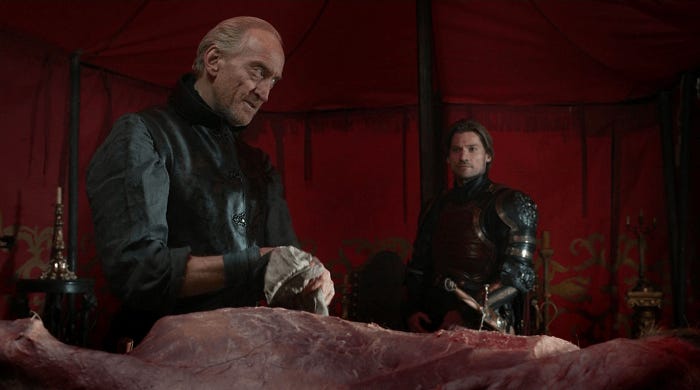-Tywin Lannister, Game of Thrones
Growing up, an enigmatic teacher taught me Buddhism and chess. Beyond chess and Buddhism, Grandmaster Shorman taught life lessons.
How he got so many precocious children to respect him is a feat of its own. We respected almost no one. Maybe we saw the playful, childish spirit within him, and his skepticism of authority mirrored our own.
Mold the World
“Make the most aggressive move based on strong, strategic principles.”
Have principles and frameworks to live by. They should be studied and learned until they’re embedded into your unconscious. Your natural tendency should be to follow the principles you believe in. It takes conscious effort to get to this point.
In life, an example principle is honesty. We’ve all known someone who has to have an answer to every question even when they don’t know. Having honesty is a principle that takes time to program into your unconscious. By default, be honest.
When you have ingrained principles, a given action will intuitively feel right or wrong. This is why grandmaster chess players often see colors and play by feeling and seem to almost post-rationalize positional moves.
After your principles are part of you where you can’t think to go against them, be aggressive. Be uncomfortably aggressive. It’s the fastest way to achieve a goal. If you want something, go after it.
“The best defense is counterattack”
When someone attacks, they leave themselves vulnerable from how they attack and why they’re lashing out. If they didn’t care, they wouldn’t be attacking. Are they feigning an attack or do they feel backed into a corner?
Life Advice
Beyond teaching chess, Grandmaster Shorman gave advice that was oddly prophetic– predicting the success and personalities of friends and family. He counseled them on how to temper their character. We’d discuss life and purpose. He said very few words, but what he said would stick with me.
He’d call me Grandmaster Jonathan. He said if I applied myself, I could become a grandmaster. The question was if I would apply myself. Giving me this rare approval was his way of pushing me to apply myself in other areas.
He gave tapes of Alan Watts lectures to some of his students. Many would come to love and appreciate Alan Watts later in life even if at the time, they didn’t fully grasp his wisdom.
Grandmaster Shorman said one should do what’s right. It doesn’t matter whether it’s recognized or rewarded. He told me a story about a nun who lived in North Korea and fed and saved thousands of people. Her name wasn’t known, and many never heard of her acts. She wanted it that way. He said that’s the life to strive for.
Oddities
As a Buddhist, he was deliberately celibate. He’d jokingly say the monks had it right as it’s not worth the trouble. I feel it’s a reflection of his living for others.
The doorbell would ring. I’d open the door; No one would be there. I’d go outside and Grandmaster Shorman would be around the corner, his face expressionless while waving his hand hello. I have dozens of memories of him showing up like this at our house.
Sometimes he told you he'd show up, and other times, he’d show up unannounced.
Grandmaster Shorman said if he listened to authority, he’d already be dead. We weren’t sure if the government knew who he was.
Golden Mean
When he had a student who was overzealous, he’d tell them to be softer. When he had a soft student, he’d tell them to be harder. The advice depended upon the student, smoothing out their rough edges and strengthening their weak spots.
“Many great men were once chess players. Few great chess players become great men.”
If you’re doing something, do it well. Win. But a sport or hobby is likely not your life’s calling. And that’s OK.
The game isn’t the purpose of the game. It’s the lessons you learn and how they can be applied to your life.



